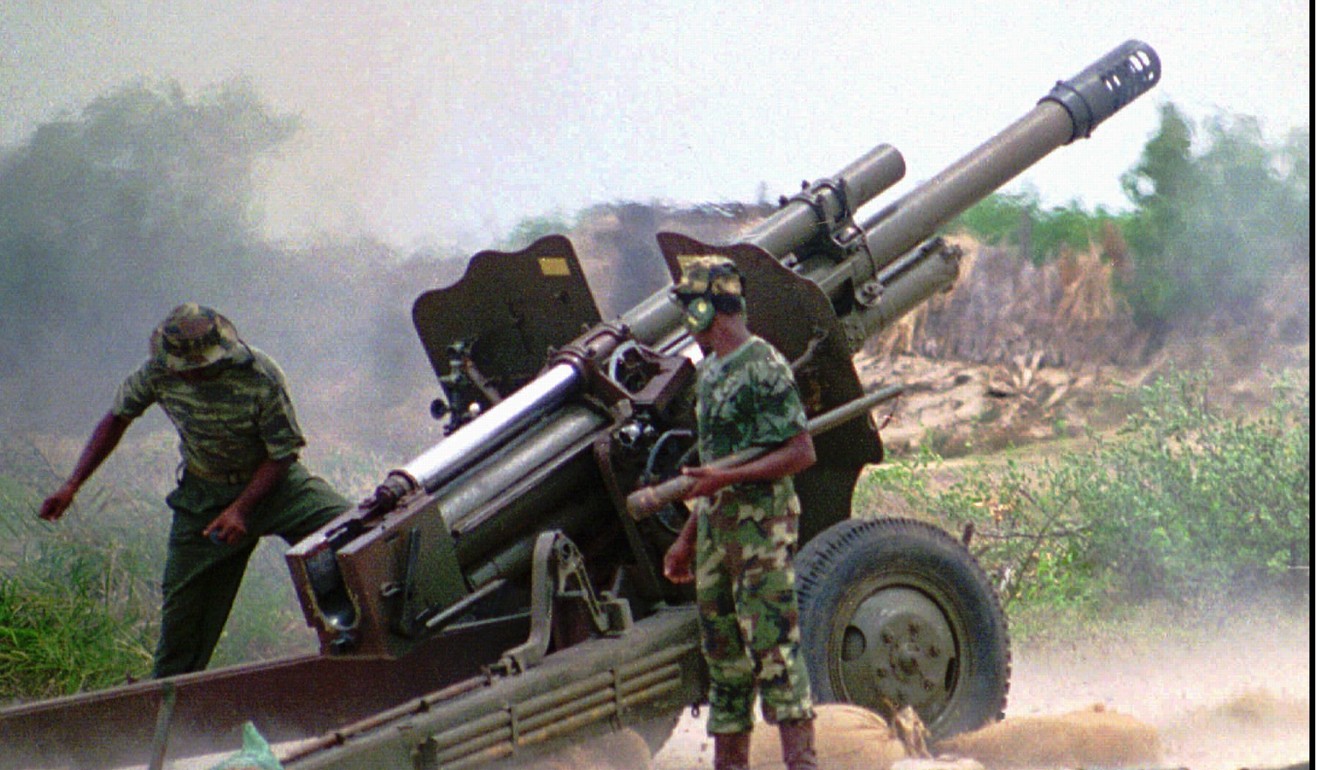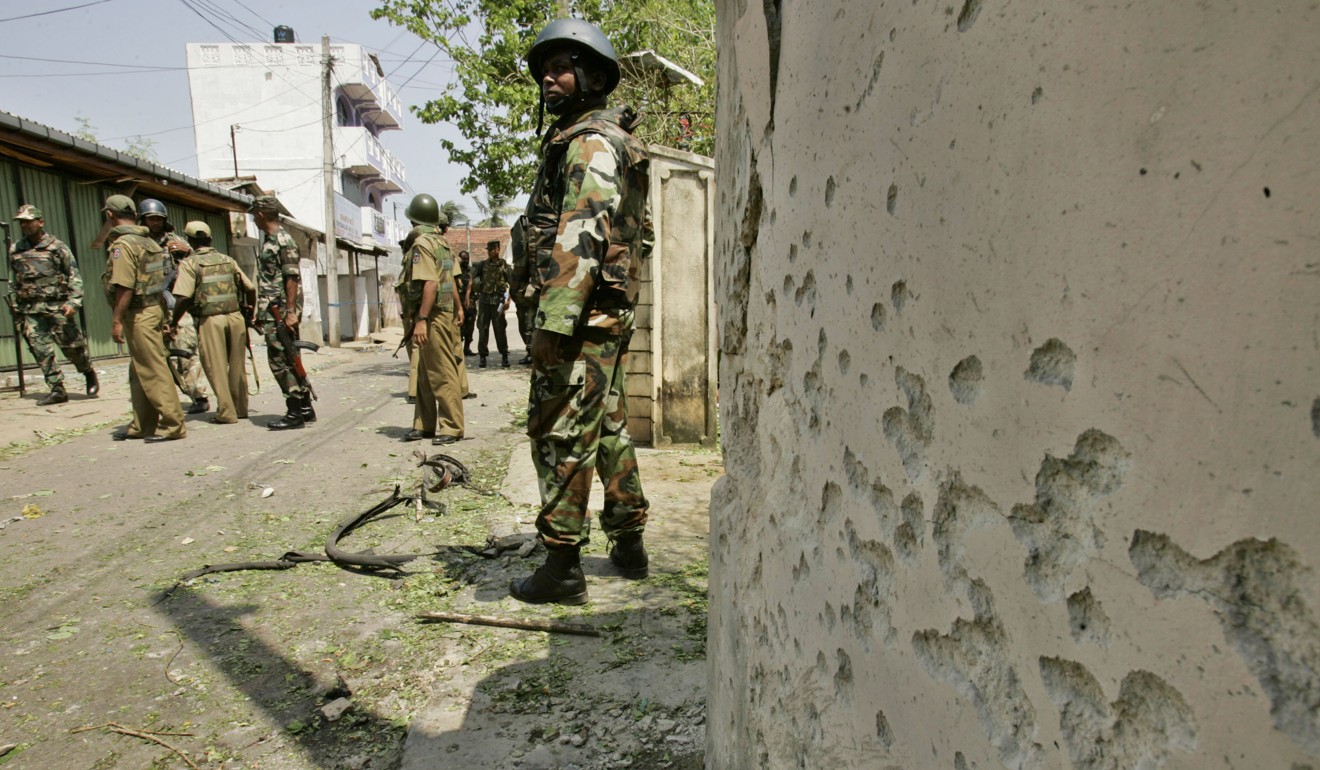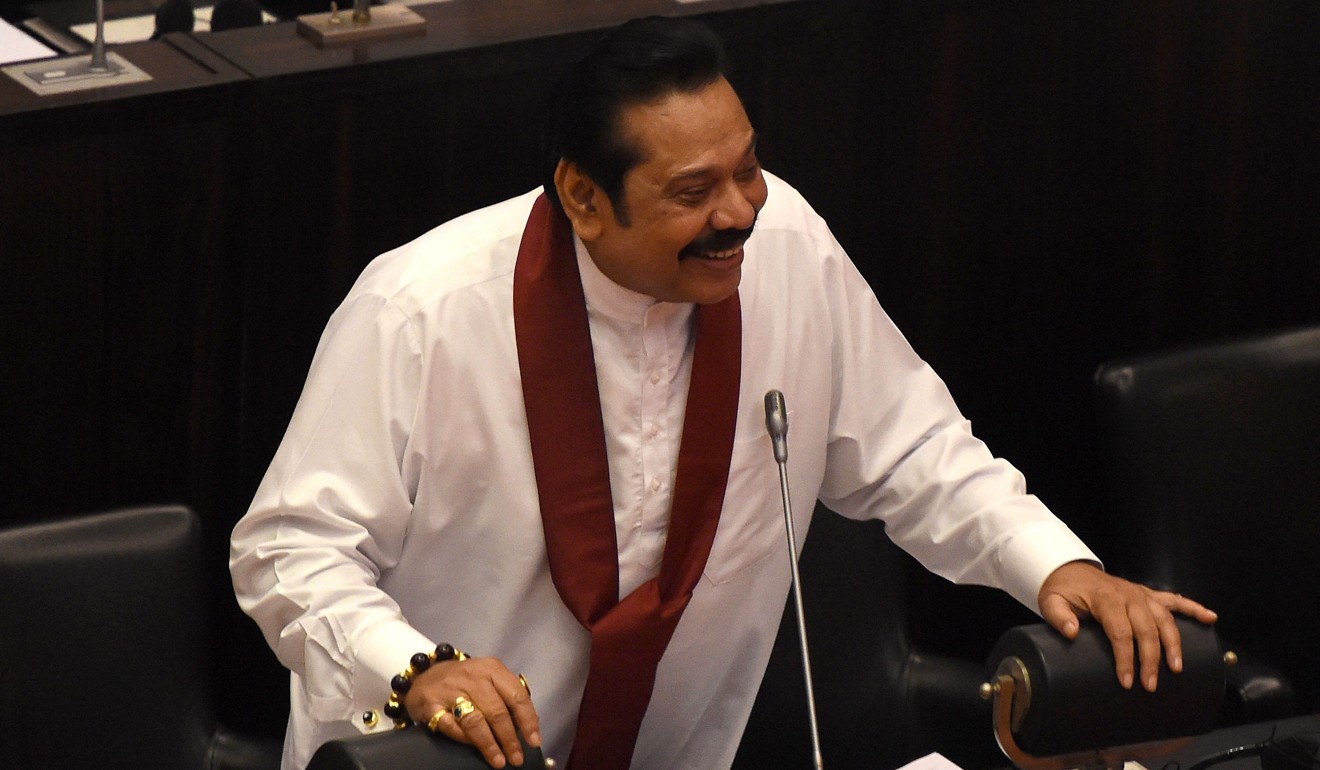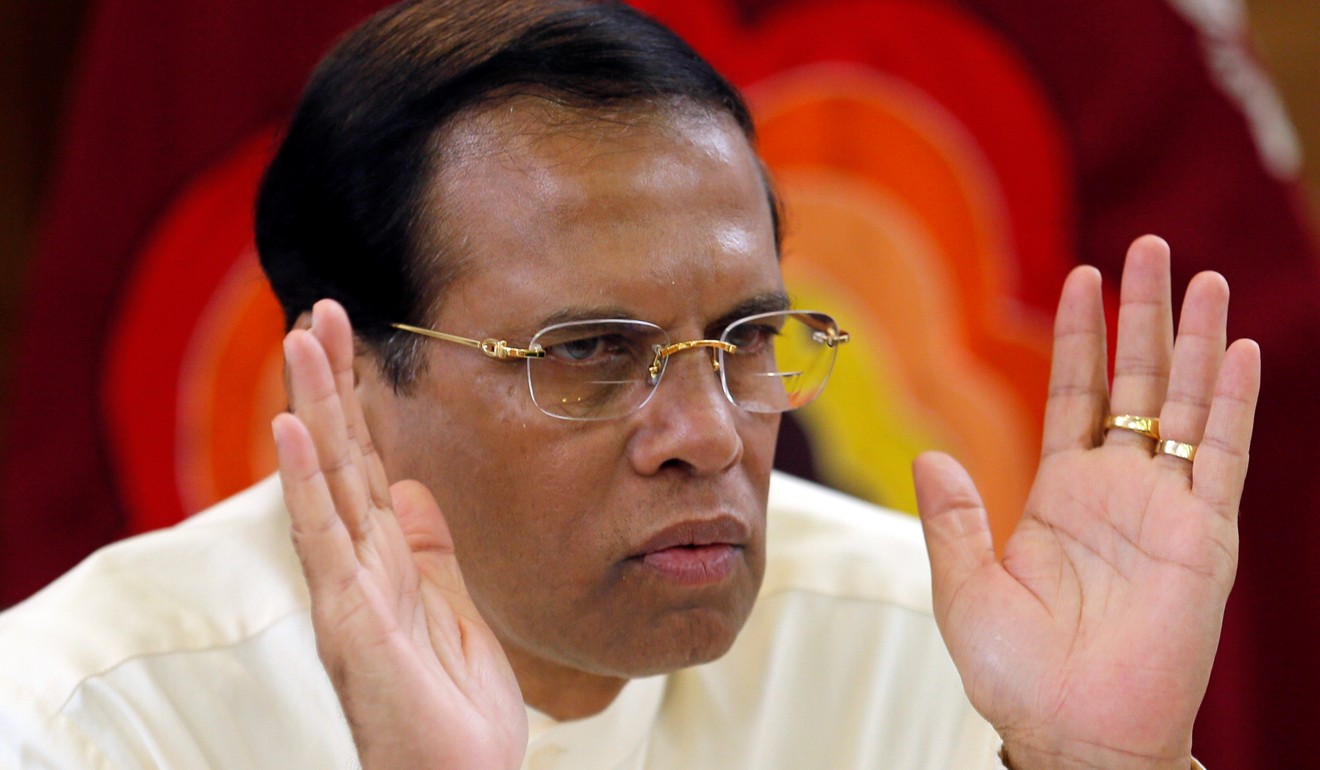
Top Sri Lankan military official detained over mass murder cover-up after weeks of evading arrest
- Admiral Ravindra Wijegunaratne will be held in custody pending investigations into the killing of 11 young men between 2008 and 2009

Sri Lanka’s highest-ranking military officer was remanded by a court on Wednesday after weeks evading arrest for allegedly protecting the chief suspect in the murder of 11 people during the civil war.
The Colombo Fort magistrate ordered that Admiral Ravindra Wijegunaratne, the country’s military chief, be held in custody for a week pending investigations into the abduction and murder of the young men between 2008 and 2009.
The magistrate denied bail for Wijegunaratne after it emerged he tried to abduct a key witness over the weekend, and sought to have an investigator removed from the case.

“I am denying bail because in your position you are able to influence witnesses and disrupt the investigations,” Magistrate Ranga Dassanayake told a packed courthouse.
Wijegunaratne, who arrived at court flanked by military personnel, has denied protecting the chief suspect in the high-profile murders - a navy intelligence officer - or attempting to cover-up the crimes.
He appeared in full military regalia, earning a rebuke from Magistrate Dassanayake who suggested he was trying to intimidate the court.
Earlier, his entourage attacked journalists trying to photograph the official as he arrived at court. A navy officer was later arrested by police for assault.
Three arrest warrants were issued for Wijegunaratne this month but the top military appointee refused to surrender, even travelling to Mexico as an envoy for the president.
Investigators told the court that Wijegunaratne was protecting the main accused in the high-profile murders, naval intelligence officer Chandana Prasad Hettiarachchi.
He was arrested in August over the killings in the closing stages of Sri Lanka’s bloody separatist war that ended in May 2009.

Three warrants for Wijegunaratne’s arrest were issued earlier this month but he ignored them, even travelling to Mexico while investigators were seeking a statement from him.
Police believe the 11 victims were killed while in the illegal custody of the navy. Their bodies were never found.
Military figures were accused of abductions and extrajudicial killings during the 37-year war against the Tamil Tiger separatist movement.

Several intelligence officers are facing prosecution over the murder of journalists critical of Mahinda Rajapakse, the former president whose tenure was marred by allegations of war crimes and grave rights abuses.
His recent controversial appointment as prime minister by Sri Lanka’s president has plunged the country into crisis, with parliament twice voting against the war-era strongman ruler taking over government.
Rajapakse has refused to step aside as Sri Lanka drifts in a power vacuum, and several members of his family are being investigated for fraud and murder during his 10-year presidency. But those inquiries were thrown into doubt after his surprise return to the helm of government in an alliance with President Maithripala Sirisena.

Rajapakse lead Sri Lanka as government troops defeated the Tamil insurgency in May 2009, ending years of bitter and brutal fighting.
The final days of the offensive were marked by major abuses, according to rights groups. A UN panel has said 40,000 civilians may have been killed in the final stages of the war.